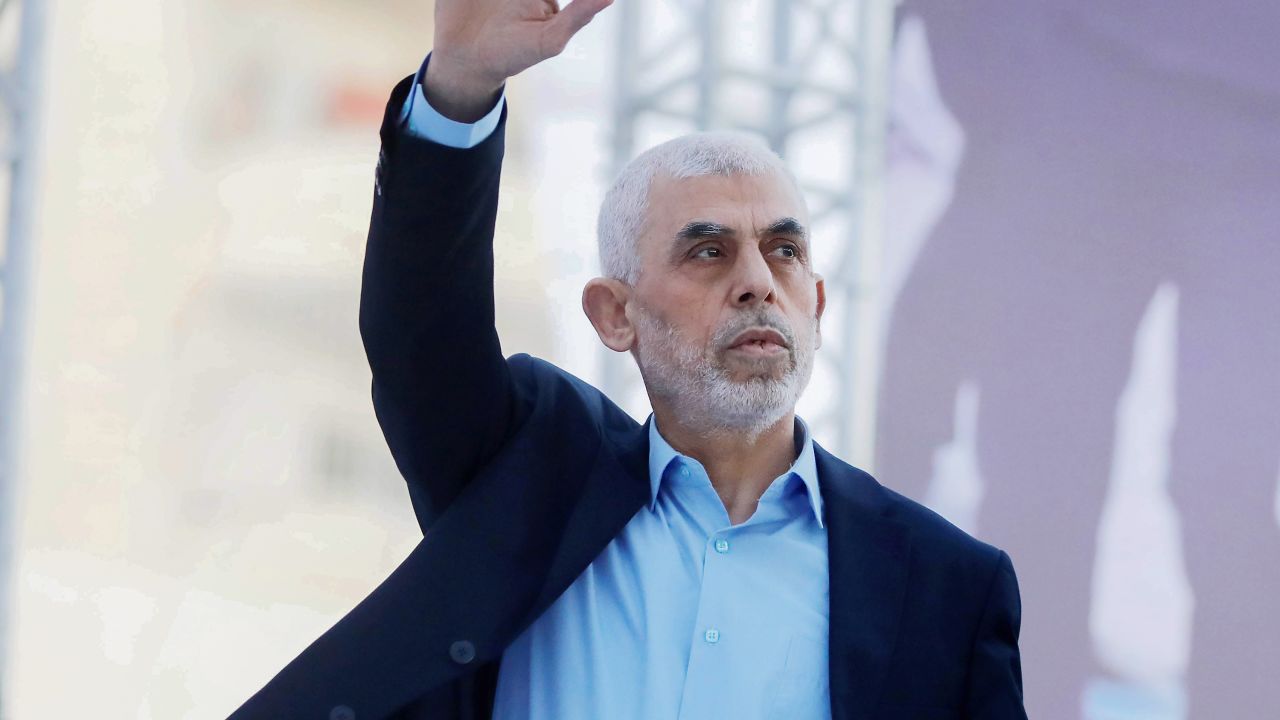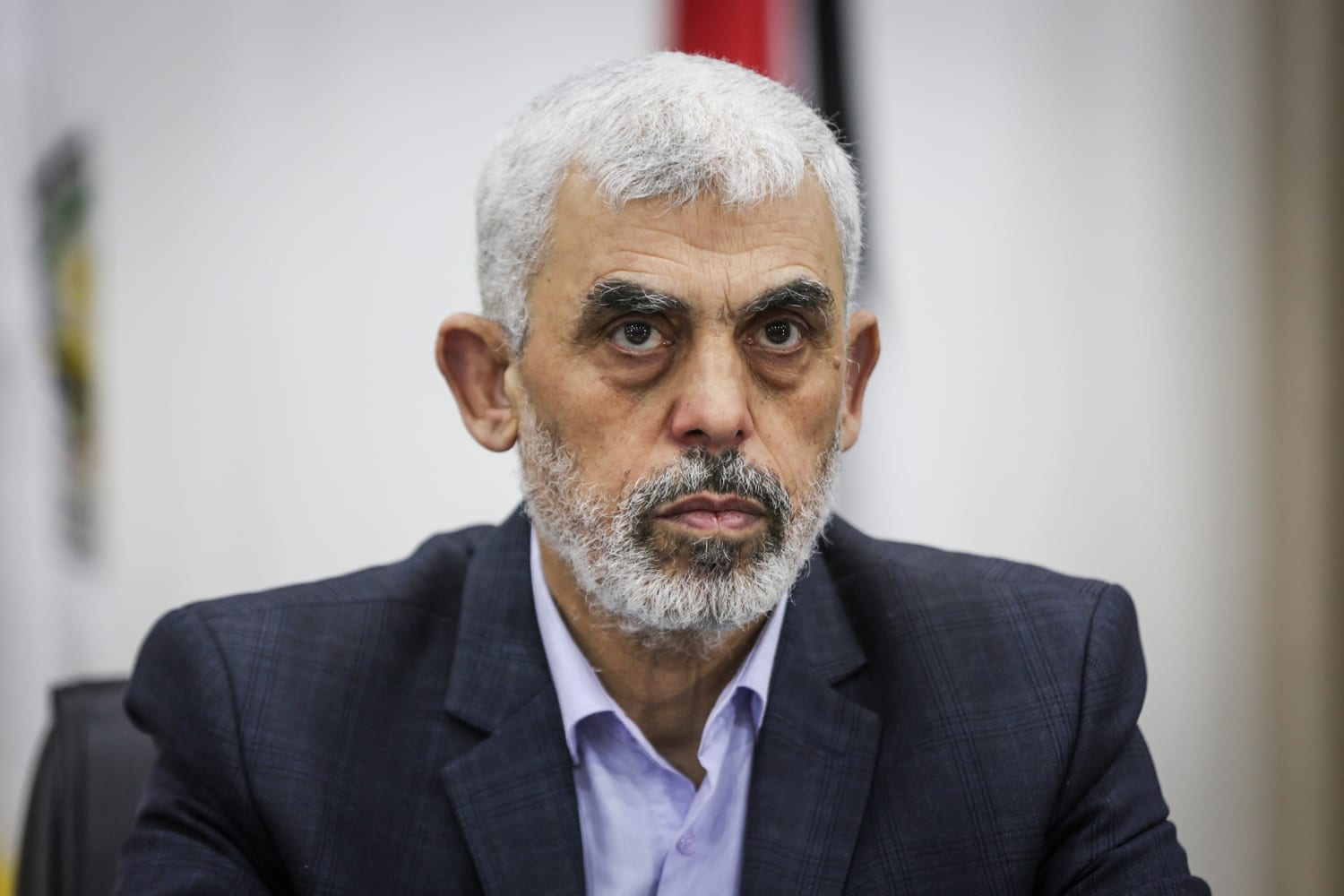The Israel Defense Forces (IDF) announced on Thursday that Yahya Sinwar, the notorious leader of Hamas, has been killed during an intense military operation in the Gaza Strip. This news marks a pivotal moment in Israel’s year-long pursuit of the top Hamas official.
The joint statement from the IDF and Israel’s Shin Bet intelligence agency confirmed, “after a year-long pursuit, yesterday (Wednesday), October 16, 2024, IDF soldiers from the Southern Command eliminated Yahya Sinwar, the leader of the Hamas terrorist organization, in an operation in the southern Gaza Strip.”
Sinwar’s Role in the October 7 Massacre

“Yahya Sinwar planned and executed the October 7th Massacre,” the statement elaborated, adding that Sinwar had promoted “his murderous ideology both before and during the war” and was directly “responsible for the murder and abduction of many Israelis.” He was killed after a year spent “Yahya Sinwar was eliminated after hiding for the past year behind the civilian population of Gaza, both above and below ground in Hamas tunnels in the Gaza Strip.”
Israeli Prime Minister Benjamin Netanyahu described Sinwar’s elimination as a “heavy blow” to Hamas but cautioned that the conflict is far from over. “Hamas will no longer rule Gaza,” Netanyahu declared, emphasizing that this marks “the beginning of the day after Hamas,” adding that the people of Gaza now have an opportunity “to finally break free from its tyranny.” Netanyahu also took a direct jab at Sinwar’s courage, saying Sinwar “ran away in fear from our soldiers.”
“He told you he was a lion, but in reality, he was hiding in a dark den — and he was killed when he fled in a panic from our soldiers,” Netanyahu said in a televised message, painting Sinwar’s demise as both a strategic and symbolic victory for Israel.
The “Butcher of Khan Younis”
Known as the “Butcher of Khan Younis,” Sinwar’s brutal tactics made him one of the most feared Hamas leaders. At 61, he was considered responsible for the massacre carried out by thousands of Hamas militants on October 7. During the operation that ultimately led to his death, Israeli soldiers identified and opened fire on suspected terrorists before they fled into a building. A tank shell was then fired, collapsing the building. When soldiers entered to assess the aftermath, they found three bodies—one of which was later confirmed to be Sinwar.
Israeli Defense Minister Yoav Gallant, Shin Bet leader Ronen Bar, and General Staff Lt. Gen. Herzi Halevi were seen speaking near the Gaza border, confirming that Hamas leader Yahya Sinwar was among the deceased.
A Major Blow to Hamas

“The master murderer, Yahya Sinwar, who is responsible for the massacre and atrocities of October 7, was killed today by IDF soldiers,” Israeli Foreign Minister Israel Katz told reporters.
Upon hearing the news, U.S. President Joe Biden reacted, saying, “This is a good day for Israel, for the United States, and for the world.” He stated, “Israel has had every right to eliminate the leadership and military structure of Hamas. Hamas is no longer capable of carrying out another Oct. 7.” Biden confirmed plans to personally congratulate Netanyahu and other Israeli leaders on this success.
American Support for the Operation
Pentagon press secretary Maj. Gen. Pat Ryder clarified that while the U.S. provided intelligence support, “this was an Israeli operation,” stressing, “there [were] no U.S. forces directly involved.” Ryder acknowledged that the U.S. has contributed information regarding hostage recovery and tracking Hamas leaders, thus indirectly aiding Israel’s efforts.
Meanwhile, the Hostages and Missing Families Forum commended Israel’s security forces for eliminating Sinwar, referring to him as the mastermind of the “greatest massacre” in Israeli history. “However, we express deep concern for the fate of the 101 men, women, elderly and children still held captive by Hamas in Gaza. We call on the Israeli government, world leaders, and mediating countries to leverage the military achievement into a diplomatic one by pursuing an immediate agreement for the release of all 101 hostages: the living for rehabilitation and the murdered for proper burial,” urging diplomatic action to secure their release.
Political Reactions from the U.S.

In Washington, House Speaker Mike Johnson, R-La., lauded the elimination of Sinwar, stating, “Justice has once again been served by the brave men and women of the Israeli military.” He also called for a joint campaign between the Biden-Harris administration and Israel to apply maximum pressure on Iran. Similarly, Sen. Lindsey Graham, R-S.C., said Israel had “rendered some sense of justice with the elimination of Sinwar.”
Israeli Defense Forces spokesman Lt. Col. Richard Hecht previously referred to Sinwar as a “dead man walking,” adding, “We will get to him, however long it takes… and this war could be long.”
Sinwar, who was believed to be hiding deep within the extensive tunnel networks beneath Gaza, was born in the Khan Younis refugee camp when the area was under Egyptian control. Throughout his life, he was known for his militant activism, joining Hamas shortly after its founding. He was arrested in 1989 for his involvement in the abduction and murder of two Israelis, as well as the killing of four Palestinians. After serving 22 years in Israeli prison, he was released in 2011 during a prisoner exchange for captured Israeli soldier Gilad Shalit.
“Sinwar has been active since the early days of Hamas,” noted Kobi Michael, a senior researcher at the Institute for National Security Studies in Tel Aviv. “In jail, he became a prominent leader of Hamas prisoners and was a very influential figure among all Palestinian prisoners.”
After his return to Gaza, Sinwar quickly rose to prominence and, in 2017, was elected by secret ballot as Hamas’s political leader, replacing Ismail Haniyeh, who was killed in Iran in July.



